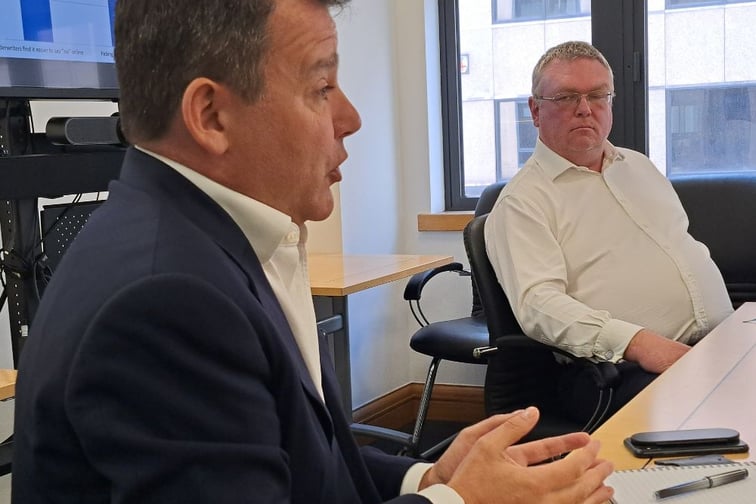

Broker workshops led by the London & International Insurance Brokers’ Association (LIIBA) found that physical, face-to-face interactions were preferred by most young brokers over electronic trading.
Of those engaged in the workshop, 97% said that they wanted their working life to comprise at least 50% face-to-face trading. These young brokers also said that this kind of close relationship was a major competitive advantage for London, and its main differentiation from other international insurance centres.
With 50 young brokers in participation and facilitated by Tysers’ global broking head and LIIBA board member Jason Collins (pictured left), the workshops served as the basis for a new report called Our Face-to-face Future, which detailed takeaways and views from younger brokers on the future of the London market.
The report further noted that while many brokers found “admin Friday” a useful way to catch up with organisational tasks, one broker said that she would leave the industry altogether if she was no longer expected to meet people, a sentiment that was applauded by many others.
Respondents also did not accept the notion that not all London market business could or should be traded in the marketplace. Ultra-complex global programs, which account for about 20% of the London business, are now mostly addressed through set piece meetings. Commoditised and simple business, which account for 30%, are often run through facilities. With those figures, the young brokers noted that the other half of the London market business would be suitable for face-to-face interactions.
Broker lounges were revealed to not be as popular for the young crowd. Those in the workshops complained that these waiting areas in insurers’ offices made for insufficient timings; 15-minute appointments granted by underwriters were not enough for a productive discussion after clearing building security, calling a lift, and exchanging pleasantries.
Collins said that all these findings and more share a stark message from young brokers, one that is calling for a return to simpler times, where these intermediaries would build their relationships in front of their partners and not through a computer screen.
“The message from young brokers is a stark one. They want to trade face-to-face; they want to build the relationships that would underpin that; and they want to do this in a room restored to its position as a true trading floor where decisions are made,” Collins said. ““The London market is a community and communities need a focal point – like a school or a church. In the London insurance market that focal point always has been and should be the Underwriting Room. A vibrant room attracts talent. It is an exciting, invigorating place to do business – and it fosters innovation.”
Earlier this year, the association launched a new initiative geared at helping university students enter the insurance industry.
What are your thoughts on this story? Please feel free to share your comments below.
